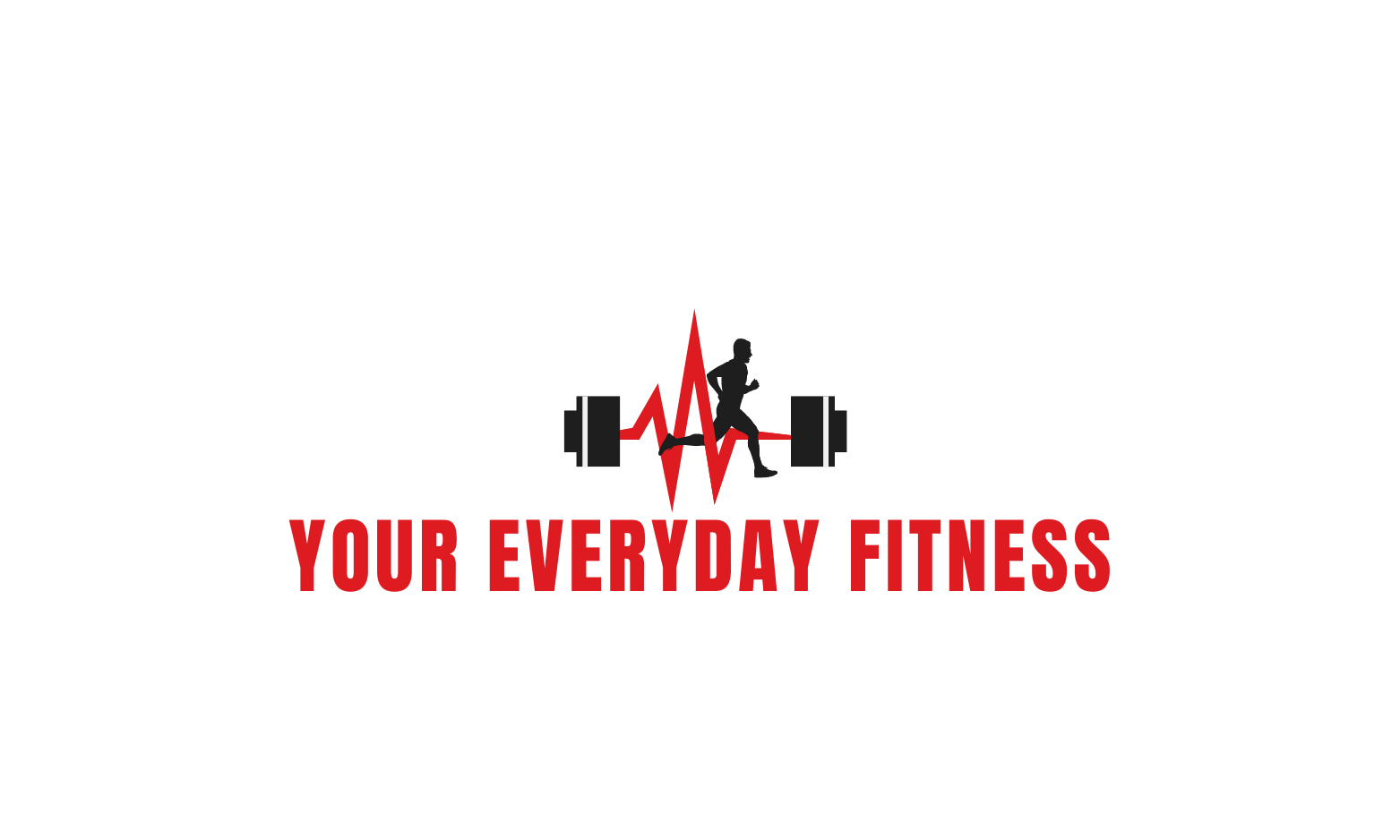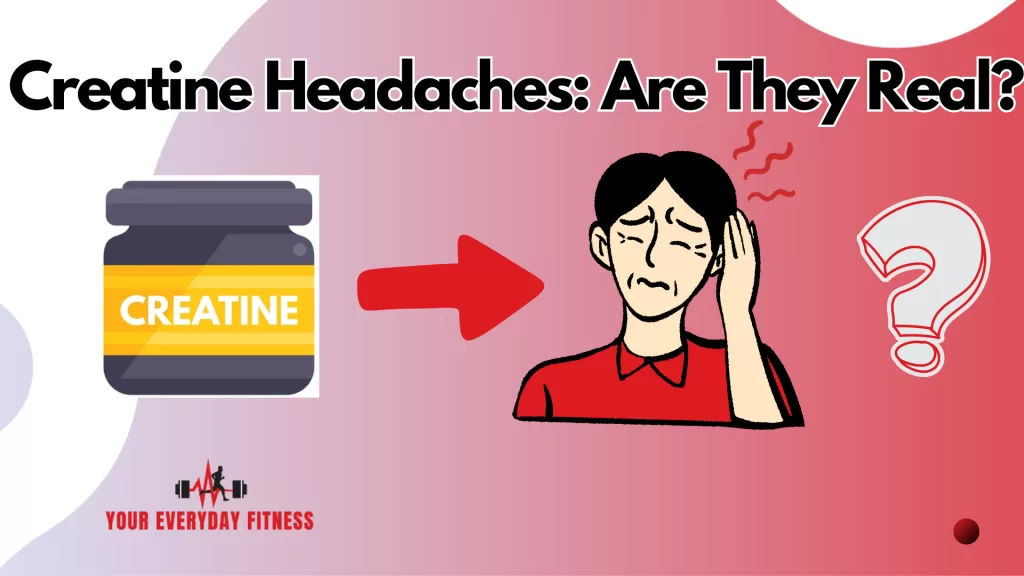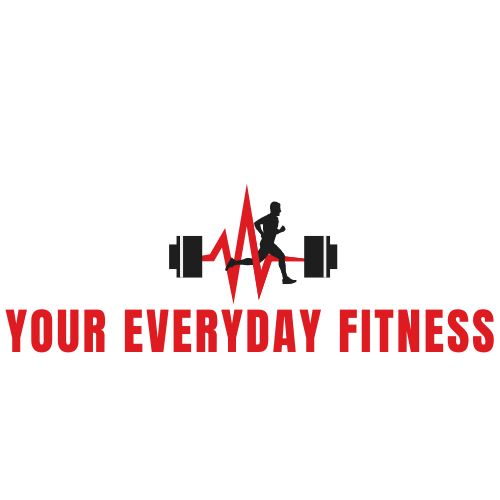Introduction
Creatine is among the most studied and widely used supplements in the fitness world. It helps with developing strength, power, and muscle recovery. But some claim they get “creatine headaches” from using the supplement.
Is this simply a coincidence, or is there an actual affiliation between creatine supplementation and headaches?
Some suggest creatine causes dehydration, others that it impacts blood pressure, electrolyte balance or brain hydration. But what does the evidence from science actually show?
In this article we are going to explore if creatine headaches are as true as they are made out to be, provide you with possible reasons you may experience them if at all, present scientific research, studies on the subject and provide you with real ways to prevent headaches while supplementing with creatine.
What Is Creatine?
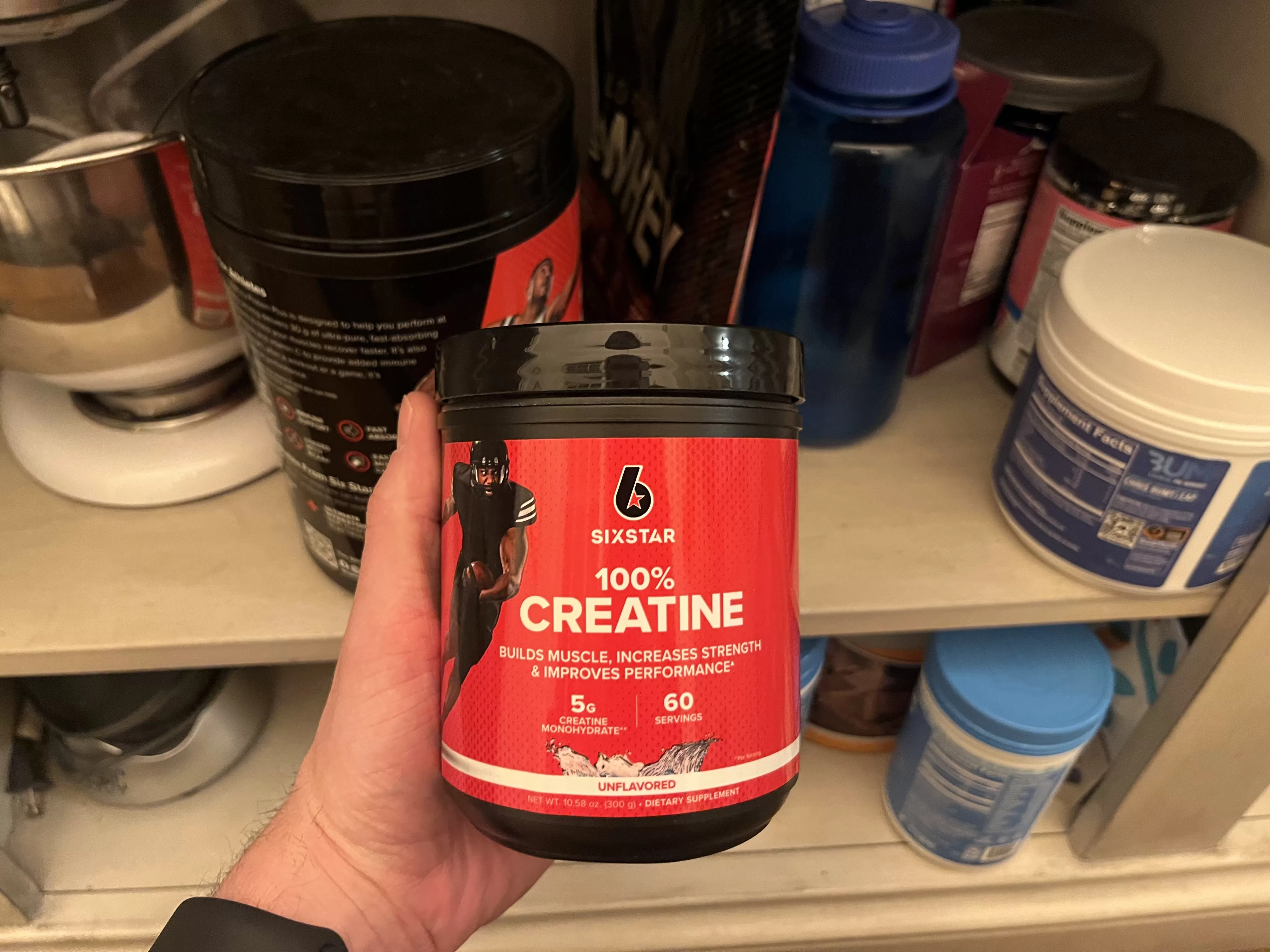
Before we discuss creatine headaches, let’s explore the potential effect of creatine in the body.
Creatine’s Role in Energy Production
Creatine is a naturally occurring compound synthesized from arginine, glycine, and methionine. Its central function is generating adenosine triphosphate (ATP), which serves as the primary source of energy for short periods of powerful activity, for example, sprinting and weight lifting (Buford et al.).
Where Do We Get Creatine?
You may be wondering how creatine is made, or where we get creatine from. There are two main sources:
- Food Sources – Contains small amounts, especially in red meat, fish and poultry.
- Supplements – the most researched and effective type is creatine monohydrate.
How Does Creatine Work?
Creatine, when ingested in supplement form, increases phosphocreatine levels in your muscles, which helps facilitate quicker ATP regeneration.
This translates to greater power and endurance, quicker recovery between sets, and greater muscle hydration and growth.
The Benefits of Creatine
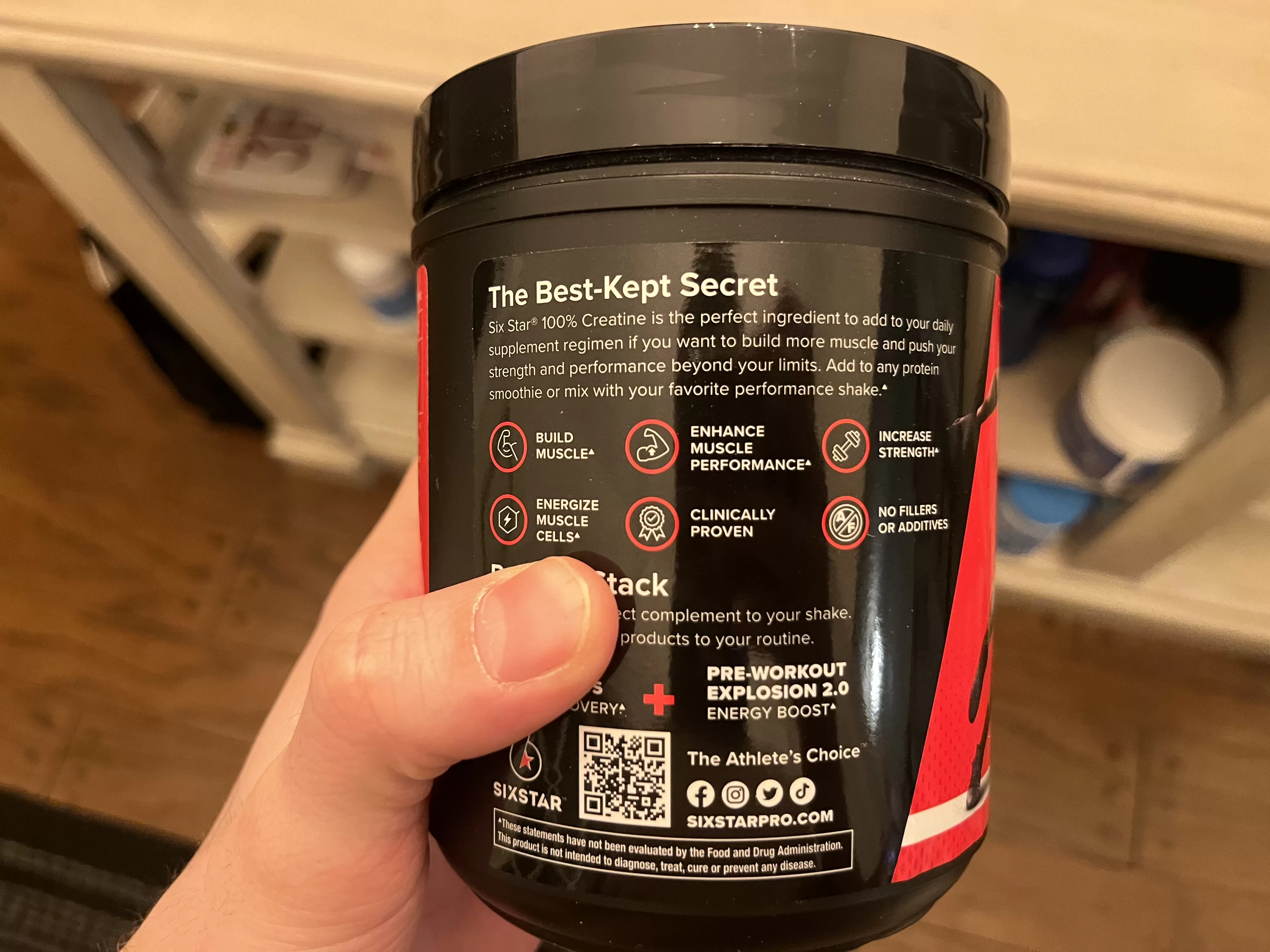
Creatine is one of the most researched and effective supplements for physical performance and general health.
1. Increases Strength and Power Output
Creatine has been shown to increase strength and power in activities of high-intensity. The higher production of ATP helps the muscles work harder (Kreider et al.).
2. Improves Muscle Recovery
Creatine supplementation may lessen the damage to muscle cells and inflammation caused by intense exercise. As a result, it promotes quicker recovery and reduced muscle soreness, allowing for more frequent training (Rawson and Venezia).
3. Enhances Muscle Growth
Creatine supplements draw water into muscle cells and help to increase muscle size. It also contributes to long-term gains in muscle through improved performance and workload capacity over time (Persky and Rawson).
4. Boosts Brain Function
Creatine is not only for muscles, but it also has a role in brain energy metabolism. Research done by the journal of Experimental Gerontology indicates that creatine supplementation can enhance cognitive function, memory, and mental fatigue, particularly in older adults or in people under stress (Avgerinos et al.).
5. Supports High-Intensity Exercise Performance
Creatine is also there to improve performance in actions that feature several rounds of short, intense effort. In sports such as football, basketball and combat sports, creatine increases energy production (Volek et al.).
6. May Help Manage Neurological Diseases
Some studies indicate that creatine supplementation may help patients with neurological diseases such as Parkinson’s and Huntington’s by enhancing cellular energy production and decreasing oxidative stress (Matthews et al.).
Potential Side Effects of Creatine
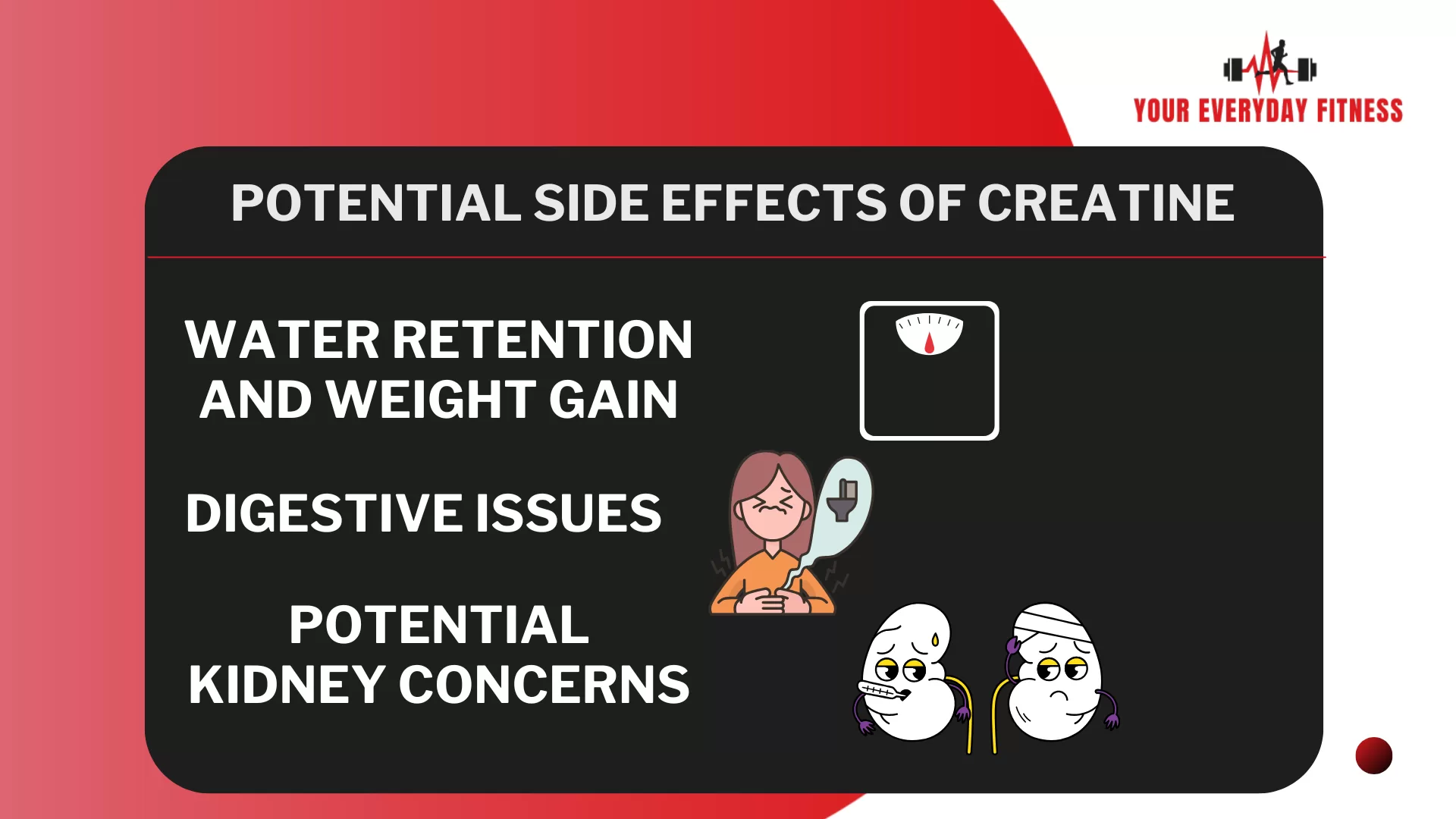
Creatine is safe for healthy individuals, but some people may experience mild side effects.
1. Water Retention and Weight Gain
Creatine has been shown to increase water retention within the muscles, resulting in mild weight gain.
As explained by the Journal of International Society of Sports Nutrition, this is not fat gain but rather increased intracellular water content (Buford et al.).
2. Digestive Issues
During the loading phase some people experience bloating, nausea, or stomach discomfort — Much of the information regarding the adverse effects of creatine stems from using high doses, specifically doing a “loading phase”.
It has been shown in a few studies, including one done by the British Journal of Sports Medicine, that splitting dosing across the day and/or taking creatine with food can minimize these effects (Dalbo et al).
3. Potential Kidney Concerns in Those with Preexisting Conditions
Creatine is safe for most people, but those with preexisting kidney disease should talk to a doctor before supplementing.
Nothing suggests that creatine is harmful to healthy kidneys, but the journal of Medicine & Science in Sports & Exercise explains that those with kidney dysfunction may need to limit their intake (Poortmans and Francaux).
Are Creatine Headaches Real?
What Science Says
There is no strong scientific evidence linking creatine directly to headaches (Kreider et al.; Persky and Rawson).
However, some people report mild creatine headaches due to indirect factors like dehydration, electrolyte imbalances, changes in blood flow, or interactions with other supplements such as caffeine and stimulants.
What Causes Creatine Headaches (with Solutions)
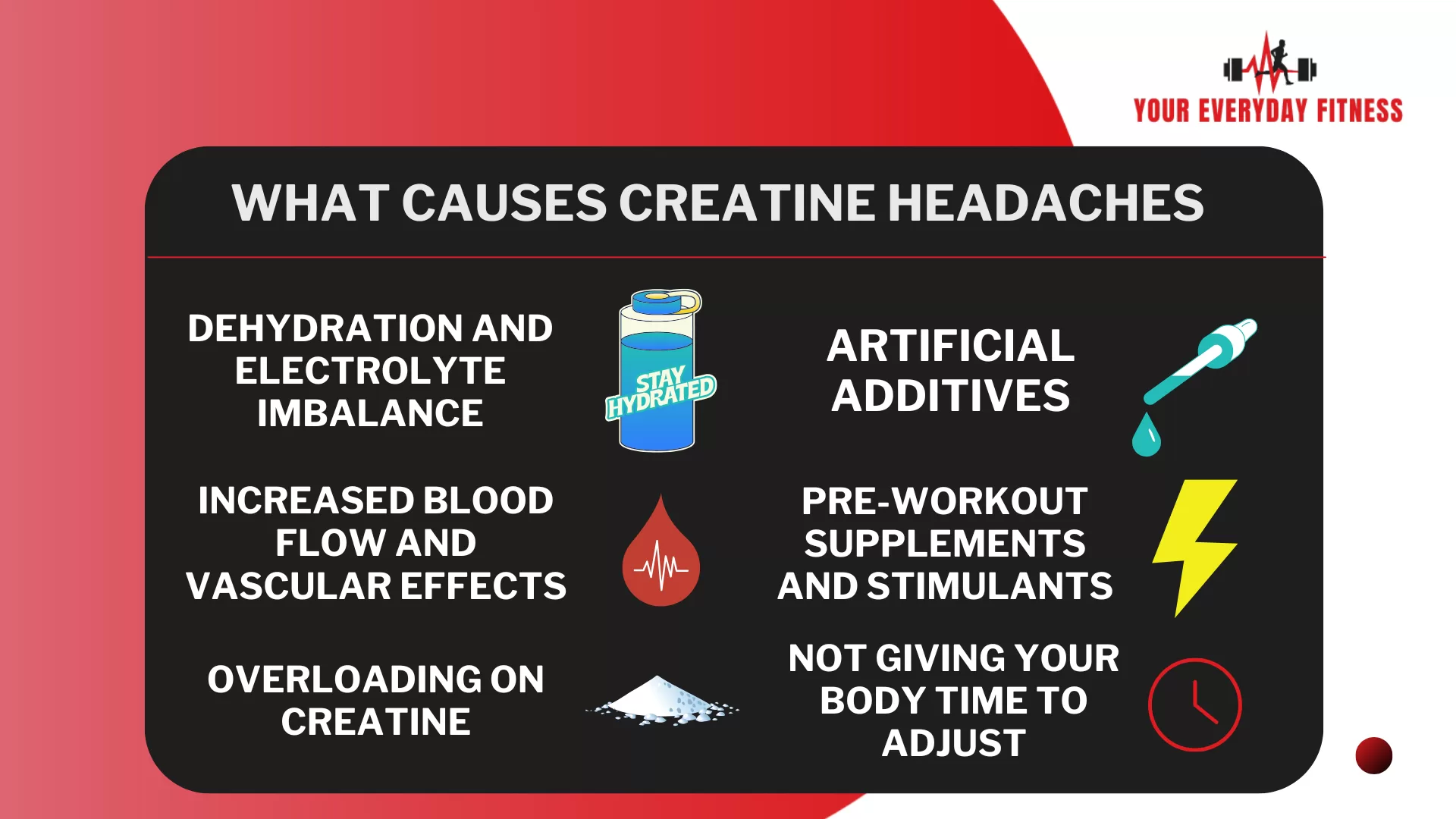
1. Dehydration and Electrolyte Imbalance
One of the most common misconceptions is that creatine dehydrates the body.
Scientific research shows that creatine actually improves cellular hydration rather than causing dehydration (Casa et al.).
However, if you’re not drinking enough water, creatine could contribute to dehydration headaches or electrolyte imbalances, particularly low sodium, potassium, and magnesium.
Solution: Drink 2.5-3 liters of water per day and replenish electrolytes.
2. Increased Blood Flow and Vascular Effects
Creatine has been shown to increase blood volume and circulation (Sökmen et al.).
For some people, this could lead to temporary headaches as blood vessels expand or sensitivity in migraine-prone individuals.
Solution: Try lowering your dosage and tracking your response.
3. Overloading on Creatine (Too Much at Once)
A high-dose loading phase of 20g per day can cause side effects like bloating, nausea, and possibly headaches.
Scientific studies show that a 3-5g daily dose is just as effective without needing a loading phase (Poortmans and Francaux). S
Solution: Skip the loading phase if you’re prone to headaches and stick to 3-5 grams per day instead.
4. Artificial Additives in Creatine Supplements
Not all creatine supplements are created equal. Some have artificial sweeteners like sucralose and aspartame, flavoring agents, dyes and other unlisted chemicals.
Some of these additives have been linked to headaches in sensitive individuals (Bigal and Krymchantowski).
Some creatines use artificial sweeteners, fillers or other additives that can lead to headaches or other side effects.
Solution: Select 100% pure creatine monohydrate without any other additives. Creatine monohydrate is the most studied, safe, and effective type of creatine. Beware of flavored or pre-mixed versions with extra ingredients you don’t need.
5. Pre-Workout Supplements and Stimulants
Creatine can be combined with pre-workout powders, which also include caffeine, beta-alanine, and nitric oxide boosters. These stimulants can lead to or exacerbate headaches in some people.
Scientific evidence indicates caffeine and stimulants can cause vasodilation, or the widening of blood vessels, which can result in headaches in certain people (Rogers et al.)
Solution: If you suspect stimulants are causing headaches, try taking creatine on its own to rule out other factors. Consider cycling off caffeine occasionally to assess your tolerance.
6. Give Your Body Time to Adjust
Some people report mild headaches when they first start taking creatine. This may be due to changes in hydration, electrolyte balance, or temporary fluctuations in blood flow.
Solution: Start with a lower dose and gradually increase it. Give your body time to adjust before deciding whether creatine is causing the issue.
Other Possible Causes of Headaches (Not Related to Creatine)
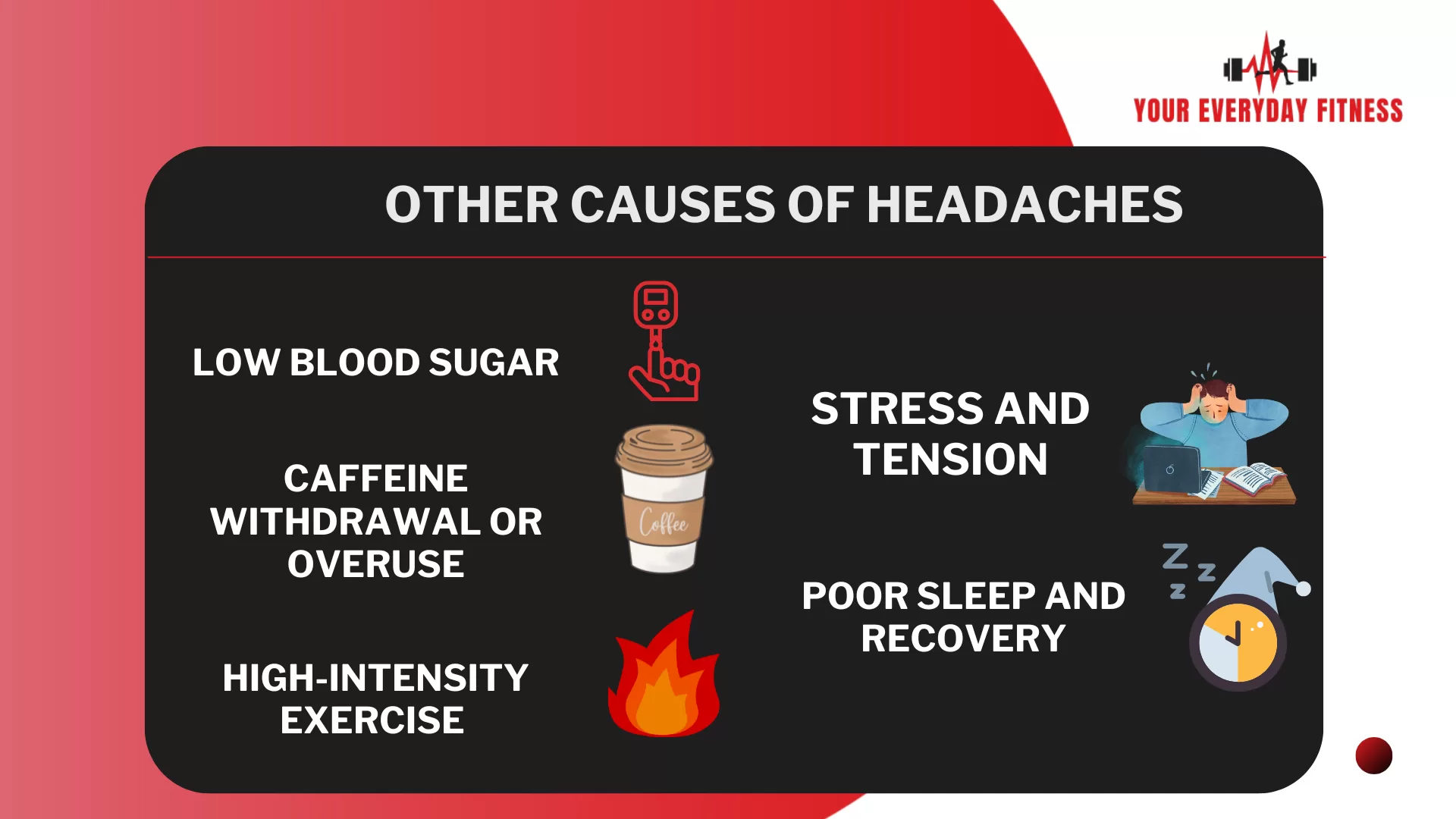
If you’re experiencing what you think are creatine headaches, there is a good chance that the creatine may not be the cause. Several other lifestyle and dietary factors could be contributing to your headaches.
1. Low Blood Sugar
Hypoglycemia—low blood sugar levels—can occur if you skip meals, follow a low-carb diet, or train in a fasted state. Common symptoms are headaches, dizziness and fatigue.
Solution: Eat balanced meals with protein, complex carbohydrates and healthy fats to stabilize blood sugar.
2. Caffeine Withdrawal or Overuse
Depending on how it is used, caffeine can either alleviate headaches or cause them. Large doses of caffeine can cause dependence, and suddenly stopping can cause withdrawal headaches.
On the contrary, excess consumption of caffeine (most commonly from pre-workouts or energy drinks) can lead to overstimulation and headache.
Solution: Track caffeine consumption and avoid dependence by taking occasional breaks.
3. High-Intensity Exercise and Exertion Headaches
Strenuous workouts can lead to exertion headaches, especially in the warm and with heavy lifting. These headaches are commonly related to higher blood pressure and blood flow to the brain.
Solution: Gradual warm-up and progressive intensification. Don’t hold your breath during your lifts and stay hydrated.
4. Stress and Tension
Stress is one of the many triggers of tension headaches, which happen because of tightness in the muscles in the neck, shoulders and jaw. The usual suspects are: bad posture, extended hours in front of a screen, a lack of relaxation.
Solution: Use stress-management strategies, such as deep breathing, stretching and taking breaks from your devices.
5. Poor Sleep and Recovery
Sleep deficiency is a prominent headache inducer, and it causes very poor recovery. Lack of sleep promotes inflammation, decreases pain tolerance, and undermines general health.
Solution: Get 7–9 hours of good sleep every night. Stick to a regular sleep schedule and reduce screen time before bed.
Creatine’s Potential Benefits for Headaches and Brain Health
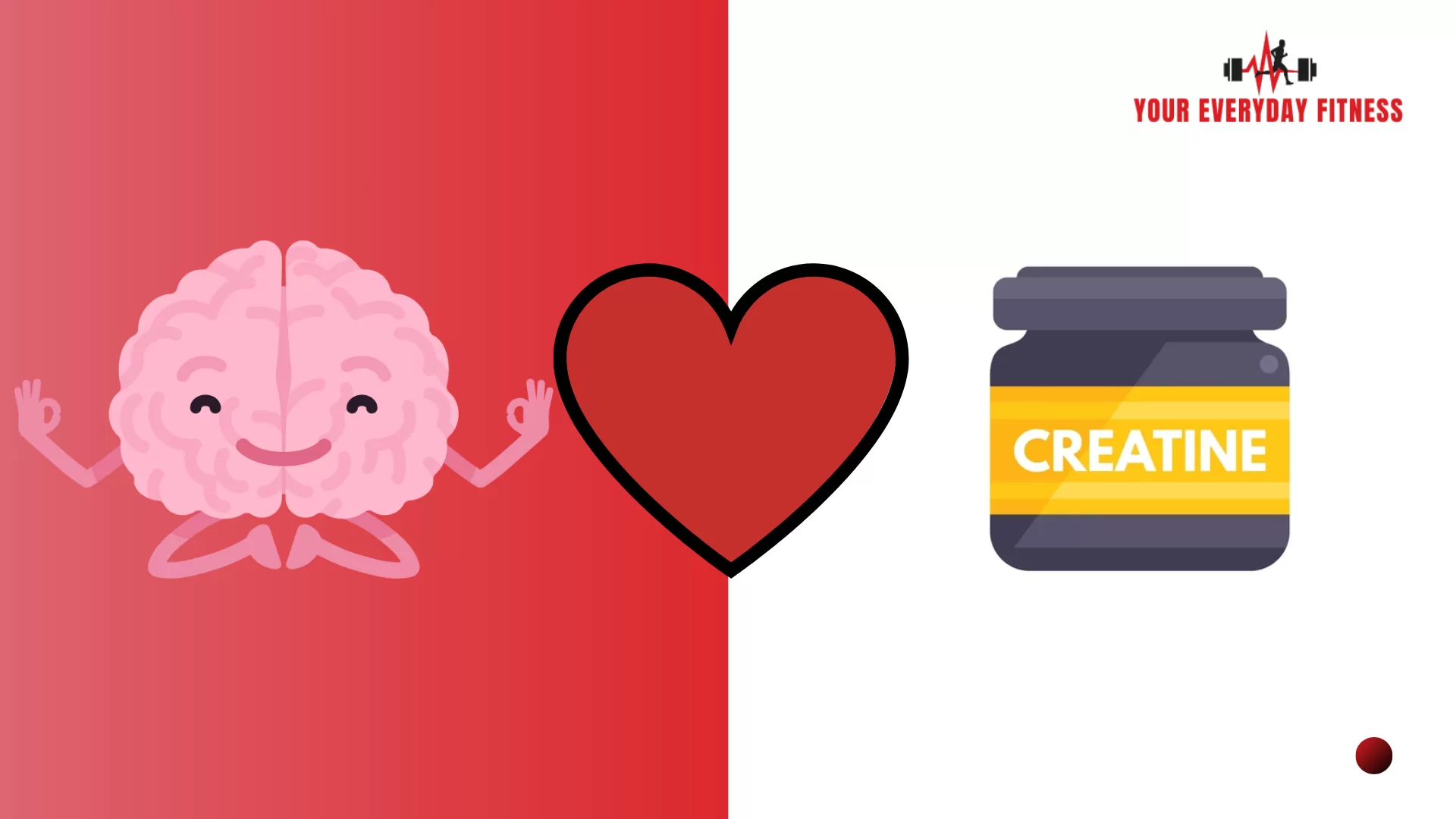
While some people believe in creatine headaches, studies are emerging that indicate creatine may actually minimize specific headache types and benefit brain function as well.
Creatine and Traumatic Headaches
A study by Sakellaris et al. reported that creatine supplementation was effective in alleviating headaches, dizziness, and fatigue in children with a history of traumatic brain injury (TBI).
This indicates that creatine may have a potential neuroprotective role in the treatment of headache secondary to head trauma.
Creatine for Migraine Prevention
Some studies have indicated that creatine may be helpful in migraine prevention. In 2020, Ostojic conducted a study in Cephalalgia looking at creatine loading as a potential treatment for chronic migraines.
More research is needed, but this preliminary evidence suggests that an impact on brain energy metabolism by creatine may work in favor of people who suffer from migraines.
Creatine and Cognitive Function
Supplementing creatine improves brain function, especially for an overworked brain. Studies by Forbes et al. and Candow et al. Note that creatine has been shown to enhance memory, cognitive processing as well as mental fatigue, especially in sleep-deprived individuals or those recovering from brain injuries.
Ainsley Dean et al. also pointed out creatine’s possible neuroprotective properties, proposing it could assist with recovery after mild traumatic brain injuries (mTBI).
This suggests that creatine may help lessen headaches associated with brain trauma, and may promote recovery from concussion.
Conclusion
So, are creatine headaches something that actually happens?
There’s little convincing evidence creatine headaches exist, as the headaches seem to be unrelated to creatine. The majority of “creatine headaches” stem from dehydration or electrolyte imbalance, overconsumption of caffeine, or underlying health issues.
In fact, studies indicate that creatine can actually help fight off specific types of headaches, especially those associated with brain injuries, fatigue, and migraines.
Try to focus on hydration, electrolytes, and not adding in unnecessary stimulants to prevent headaches.
Creatine is one of the safest and well-researched supplements we have available, and if used properly, can have physical and cognitive benefits.
References
- Ainsley Dean, P. J., et al. “Potential for use of creatine supplementation following mild traumatic brain injury.” Concussion, vol. 2, no. 2, 2017, doi:10.2217/cnc-2016-0016.
- Avgerinos, Konstantinos I., et al. “Effects of creatine supplementation on cognitive function of healthy individuals: A systematic review of randomized controlled trials.” Experimental Gerontology, 2018.
- Buford, Thomas W., et al. “International Society of Sports Nutrition position stand: creatine supplementation and exercise.” Journal of the International Society of Sports Nutrition, 2007.
- Candow, Darren G., et al. “‘Heads Up’ for Creatine Supplementation and its Potential Applications for Brain Health and Function.” Sports Medicine, vol. 53, 2023, pp. 49-65, doi:10.1007/s40279-023-01870-9.
- Forbes, S. C., et al. “Effects of Creatine Supplementation on Brain Function and Health.” Nutrients, vol. 14, no. 5, 2022, doi:10.3390/nu14050921.
- Ostojic, S. M. “Creatine loading for chronic migraine?” Cephalalgia, vol. 40, no. 8, 2020, pp. 878-879, doi:10.1177/0333102420931055.
- Sakellaris, G., et al. “Prevention of traumatic headache, dizziness and fatigue with creatine administration: A pilot study.” Acta Paediatrica, vol. 97, no. 1, 2008, pp. 31-4, doi:10.1111/j.1651-2227.2007.00529.x
